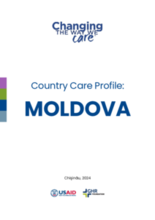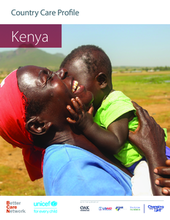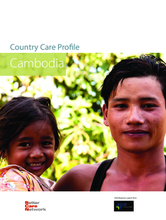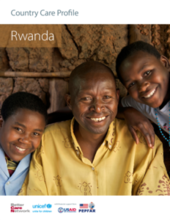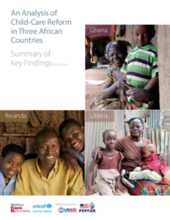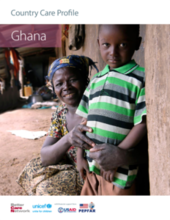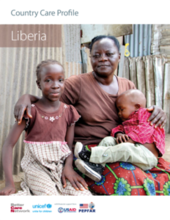The Better Care Network (BCN) in partnership with key stakeholders initiated in 2014 a series of 'Country Care Profiles' to provide an overview and analysis of the national care system reforms efforts across different countries and regions.
The goal of the country care profiles is to inform the strengthening of care reform efforts globally, as well as within a particular region. The adoption, in 2019, of a UN General Assembly Resolution focused on the rights of children without parental care has underlined growing international commitments towards supporting family-based care for children, ongoing child protection systems-strengthening initiatives, deinstitutionalization, and reintegration efforts. The profiles can contribute to the exchange of information, between and among countries, on successes and challenges in implementing care reform efforts, facilitate the development of a community of practice across countries, and harness reform and political will among donors, governments, and non-governmental actors.
Ultimately, these care reform profiles can increase collaboration between national and regional actors passionate about, and promotive of, safe and nurturing family-based care for children in any context.
Based on a framework reflective of international standards on children's care, including the ‘United Nations Guidelines for the Alternative Care of Children’, the profiles provide an overview and analysis of key areas in reform efforts, covering key reform components including the legal and policy framework, service delivery, social service workforce, financing, and monitoring and evaluation (M&E) and information systems. They also provide a more comprehensive overview of key lessons learned, including successes, challenges, gaps identified and promising practices.
The content of each of the country profiles addresses the following topics:
- Overview of country context, including the population of children living outside of family care or at risk
- Description of child protection and child care system, including care reform initiatives
- Child care national legal and policy frameworks
- Prevention of the need for alternative care, including analysis of national deinstitutionalisation strategies and interventions
- Analysis of formal alternative care
- Analysis of informal alternative care
- Domestic and intercountry adoption
- Care during an emergency
- Public awareness and advocacy
- Conclusion and key lessons
Displaying 1 - 7 of 7
This country care profile provides an overview of key lessons learned in the children’s care reform process in Moldova, including successes, challenges and areas for progress, and gaps in learning and best practice.
This country care profile provides an overview of key lessons learned in the children’s care reform process in Kenya, including successes, challenges and areas for progress, and gaps in learning and best practice.
This country care profile provides an overview of key lessons learned in the children’s care reform process in Cambodia, including successes, challenges and areas for progress, and gaps in learning and best practice.
This country care profile provides an overview of key lessons learned in the children’s care reform process in Rwanda, including successes, challenges and areas for progress, and gaps in learning and best practice.
This report summarizes the care-reform process of three sub-Saharan African countries – Ghana, Liberia and Rwanda.
This country care profile provides an overview of key lessons learned in the children’s care reform process in Ghana, including successes, challenges and areas for progress, and gaps in learning and best practice.
This country care profile provides an overview of key lessons learned in the children’s care reform process in Liberia, including successes, challenges and areas for progress, and gaps in learning and best practice.

